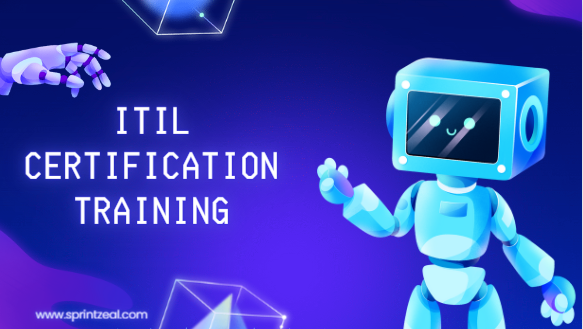In the fast-paced world of Information Technology (IT), organizations strive to enhance their efficiency, deliver superior services, and optimize their processes. The Information Technology Infrastructure Library (ITIL) has emerged as a globally recognized framework that addresses these needs, providing a set of best practices for IT service management (ITSM). ITIL certifications have become increasingly popular among professionals seeking to advance their careers in IT service management. This article delves into the world of ITIL certifications, exploring what they entail and assessing their worth in the ever-evolving landscape of IT.
What is ITIL?
ITIL, or the Information Technology Infrastructure Library, is a framework that outlines best practices for IT service management. Developed by the United Kingdom’s Central Computer and Telecommunications Agency (CCTA) in the 1980s, ITIL has since undergone multiple updates and revisions. The framework is designed to help organizations align their IT services with their business goals and improve overall efficiency.
ITIL encompasses a series of practices, processes, and concepts that guide IT professionals in delivering high-quality services. It covers various aspects of IT service management, including service strategy, design, transition, operation, and continual service improvement. ITIL has become a global standard, with organizations across industries adopting its principles to enhance their IT service delivery.
Types of ITIL Certifications
ITIL certification are structured in a tiered format, offering a progression from foundational to more advanced levels. The certifications are designed to cater to the diverse needs and expertise levels of IT professionals. Here are the key ITIL certification levels:
- ITIL Foundation: This entry-level certification provides a fundamental understanding of the ITIL framework, its key concepts, and terminology. It is suitable for individuals who are new to IT service management or those seeking a basic understanding of ITIL practices.
- ITIL Practitioner: Building on the Foundation level, the Practitioner certification focuses on applying ITIL concepts in practical situations. It equips professionals with the skills to adopt and adapt ITIL practices within their organizations.
- ITIL Intermediate: The Intermediate level consists of two streams – Service Lifecycle and Service Capability. Each stream offers specialized certifications covering specific aspects of ITIL, such as service strategy, service design, service transition, service operation, and continual service improvement.
- ITIL Expert: To attain the ITIL Expert certification, candidates must accumulate credits from both the Foundation and Intermediate levels. This certification demonstrates a comprehensive understanding of ITIL concepts and their application across the IT service lifecycle.
- ITIL Master: The highest level of ITIL certification, ITIL Master, is designed for seasoned professionals. To achieve this certification, candidates must demonstrate the ability to apply ITIL principles in real-world scenarios and contribute significantly to organizational success.
Are ITIL Certifications Worth It?
The value of ITIL certifications depends on various factors, including an individual’s career goals, the industry they work in, and the specific needs of their organization. Here are several reasons why pursuing ITIL certifications can be worthwhile:
- Industry Recognition: ITIL is widely recognized and adopted across industries globally. Having ITIL certifications on your resume can enhance your professional credibility and make you stand out in a competitive job market.
- Improved Skills and Knowledge: ITIL certifications provide a structured and comprehensive understanding of IT service management best practices. Professionals who undergo ITIL training gain valuable insights into optimizing processes, enhancing service delivery, and aligning IT services with business objectives.
- Career Advancement: Many organizations value employees with ITIL certifications, especially when considering candidates for roles involving IT service management, process improvement, and strategic planning. ITIL certifications can open doors to higher-level positions and increased responsibilities.
- Organizational Benefits: Organizations that adopt ITIL practices often experience improved service quality, increased customer satisfaction, and greater operational efficiency. Employees with ITIL certifications contribute to these positive outcomes by applying best practices within the organization.
- Adaptability and Flexibility: ITIL certifications equip professionals with the skills to adapt and implement best practices in diverse organizational contexts. This adaptability is particularly valuable in a dynamic IT landscape where changes and innovations occur frequently.
- Global Career Opportunities: As ITIL is a globally recognized framework, professionals with ITIL certifications have the advantage of pursuing opportunities on an international scale. This is particularly beneficial for those seeking to work with multinational corporations or in regions where ITIL is widely adopted.
Despite these advantages, it’s essential to consider potential drawbacks and challenges associated with ITIL certifications. For example, the cost of certification exams and training programs, the time commitment required for preparation, and the evolving nature of IT practices are factors that individuals should carefully weigh.
Conclusion
In conclusion, ITIL certifications play a crucial role in enhancing the skills, knowledge, and career prospects of IT professionals. The framework’s widespread adoption across industries underscores its relevance in addressing the challenges of IT service management. While the decision to pursue ITIL certifications ultimately depends on individual career goals and organizational needs, the benefits of increased industry recognition, improved skills, and potential career advancement make ITIL certifications a worthwhile investment for many professionals. As IT continues to evolve, staying current with best practices and industry standards is essential, and ITIL certifications provide a structured path for achieving this goal.

